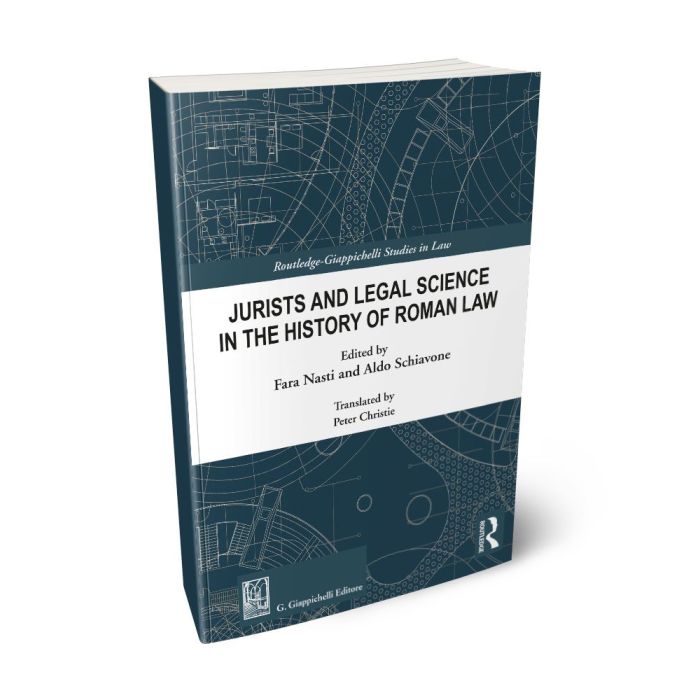This book is connected with the project Scriptores iuris Romani (P.I. Aldo Schiavone), funded by the European Research Council, and still in progress at the Sapienza University of Rome. Its aim is to provide a new textual and interpretative basis for the history of Roman law and Roman legal thought....
This book is connected with the project Scriptores iuris Romani (P.I. Aldo Schiavone), funded by the European Research Council, and still in progress at the Sapienza University of Rome. Its aim is to provide a new textual and interpretative basis for the history of Roman law and Roman legal thought. No longer the Justinian codification, the for¬midable mosaic of the Corpus iuris, but the single jurists – profile by pro¬file and work by work – in their dual function as inventors of a science and as creators of a legal system that oriented a global empire.
Thus far, seven volumes have been published by ‘L’Erma di Bretschneider’ of Rome: Quintus Mucius Scaevola. Opera (by J.-L. Ferrary, A. Schiavone, E. Stolfi); Iulius Paulus. Ad edictum libri I-III (G. Luchetti, A.L. de Petris, F. Mattioli, I. Pontoriero); Antiquissima iuris sapientia, saec. VI-III a.C. (A. Bottiglieri, A. Manzo, F. Nasti, G. Viarengo, V. Marotta, E. Stolfi); Aelius Marcianus, Instititutionum libri I-IV (D. Dursi); Callistratus, Opera (S. Puliatti); Domitius Ulpianus, Institutionum libri; De censibus (J.-L. Ferrary, V. Marotta, A. Schiavone); Iulius Paulus, Decretorum libri (M. Brutti).
At least ten other works are due to appear before the conclusion of the research in January 2022, including one on P. Mucius Scaevola, M’. Manilius, M. Iunius Brutus (S. Barbati), one on Pomponius, Enchiridion (F. Nasti), and one on Cervidius Scaevola, Quaestionum libri (A. Spina).
Here we present some articles, both on methodology and the history of historiography, and on the profile of certain jurists, which we partially discussed in a meeting in Rome, at the beginning of our research. These contributions can be considered a useful approach to a type of historical enquiry not very familiar to an English-speaking audience, but which has played a role in the revitalization and new fervour of contemporary studies on the ancient world.











